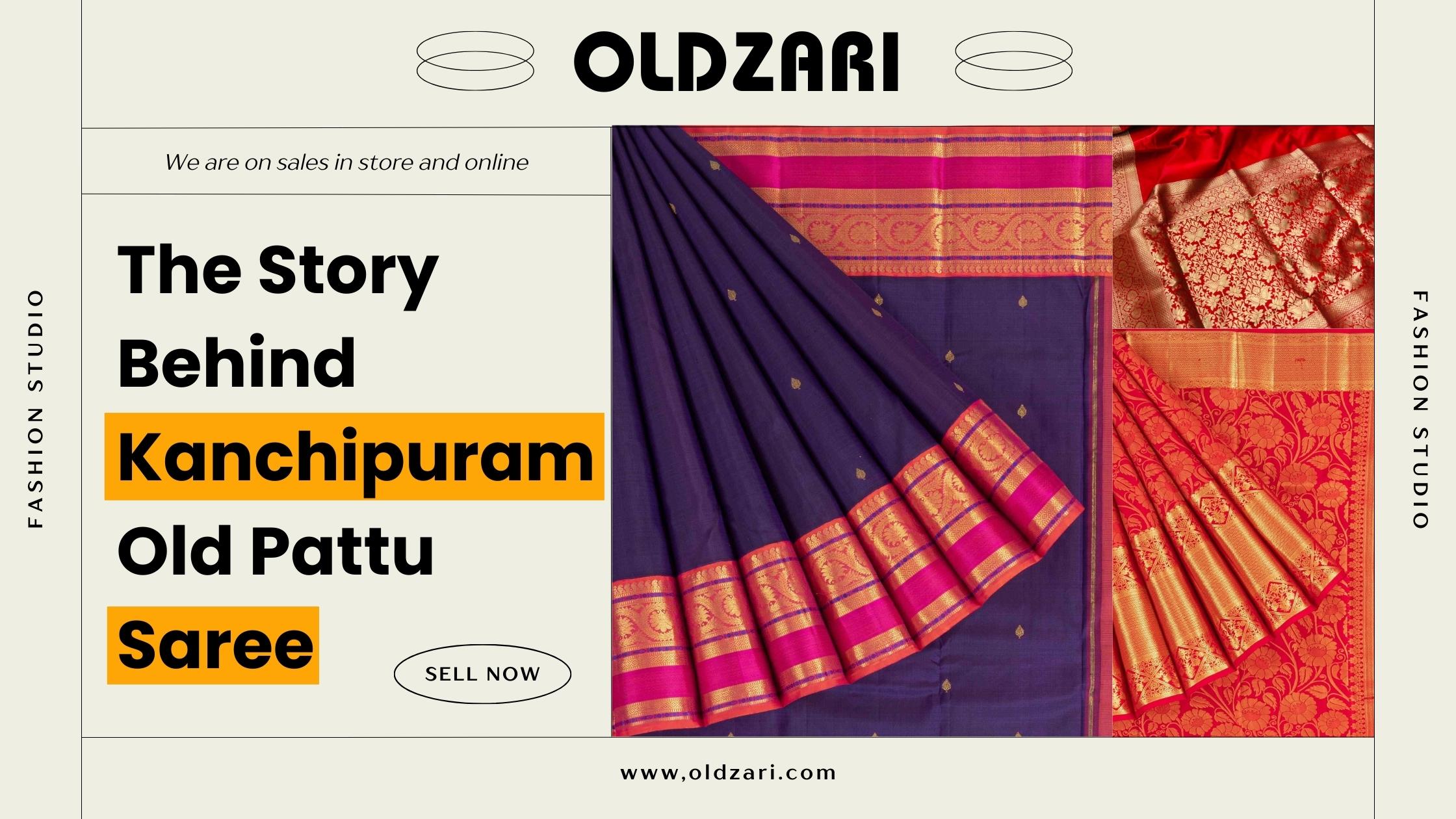
27
MayThe Story Behind Kanchipuram Old Pattu Saree
The Story Behind Kanchipuram Old Pattu Saree
Silk sarees have always been the epitome of grace and elegance, but there is one particular type of saree that stands out from the rest - the Kanchipuram silk saree. Renowned for its rich texture, intricate designs, and vibrant colors, the Kanchipuram saree holds a special place in the hearts of every Indian woman.
In this article, we will delve into the story behind the Kanchipuram old pattu saree, exploring its origins, weaving process, cultural significance, and more.
Introduction
Kanchipuram silk sarees are a traditional handwoven saree variety that originated in the town of Kanchipuram, located in the southern state of Tamil Nadu, India.
These sarees are known for their opulent appearance and impeccable craftsmanship.
The art of weaving Kanchipuram sarees has been passed down through generations, and each saree is a masterpiece in itself.
Origins of Kanchipuram Sarees
To understand the story behind the Kanchipuram old pattu saree, we need to delve into the historical background of Kanchipuram itself.
Kanchipuram, also known as Kanchi, is a town steeped in history and spirituality. It is renowned for its temples and is considered one of the seven sacred cities of India.
The temple culture of Kanchipuram has had a profound influence on the art of saree weaving in the region.
Silk Production in Kanchipuram
The production of Kanchipuram silk sarees begins with the procurement of high-quality silk. Mulberry silk, obtained from silkworms fed exclusively on mulberry leaves, is the primary type of silk used in Kanchipuram sarees.
The silk threads are meticulously extracted from the cocoons, spun into yarn, and dyed in vibrant hues to prepare them for the weaving process.
Weaving Process of Kanchipuram Sarees
The weaving process of Kanchipuram sarees is a labor-intensive craft that requires great skill and precision. The sarees are woven on traditional handlooms using a combination of silk and zari threads.
Zari, which is gold or silver metallic thread, is intricately woven into the fabric, creating stunning designs and motifs.
The weaving process involves various steps, including designing, dyeing, warping, and finally, the actual weaving.
Distinctive Features of Kanchipuram Sarees
What sets Kanchipuram sarees apart are their distinctive features. The zari work in Kanchipuram sarees is elaborate and breathtaking, with intricate patterns adorning the borders and pallu (the loose end of the saree).
The designs often depict traditional motifs inspired by nature, temples, and mythology. The color combinations used in Kanchipuram sarees are vibrant and harmonious, creating a visual spectacle.
Cultural Significance of Kanchipuram Sarees
Kanchipuram sarees hold immense cultural significance, particularly in South India. They are considered a symbol of tradition and heritage and are often passed down from one generation to another as heirlooms.
Kanchipuram sarees are typically worn on auspicious occasions such as weddings, festivals, and religious ceremonies.
They enhance the beauty and grace of the wearer and are believed to bring good luck and prosperity.
Kanchipuram Sarees in the Modern Era
While the traditional art of weaving Kanchipuram sarees remains intact, contemporary trends have also made their way into this timeless craft. Designers experiment with new color combinations, motifs, and patterns, catering to the evolving tastes and preferences of modern women. Kanchipuram sarees have gained global recognition and are cherished by saree enthusiasts worldwide.
Maintaining and Caring for Kanchipuram Sarees
To maintain the longevity and beauty of Kanchipuram sarees, appropriate care and maintenance are required. It is recommended to store them in clean, dry, and dark spaces to protect them from moisture, sunlight, and pests. Professional cleaning is advised to retain their luster and sheen. Gentle handwashing or dry cleaning should be undertaken whenever necessary.
Conclusion
The story behind the Kanchipuram old silk saree is one of intricate artistry, cultural heritage, and timeless beauty. These sarees represent the rich traditions of South India and continue to captivate people with their exquisite craftsmanship.
Whether worn by a bride on her wedding day or donned by a woman celebrating a festival, the Kanchipuram saree weaves together a tale of elegance and grace that transcends time.
